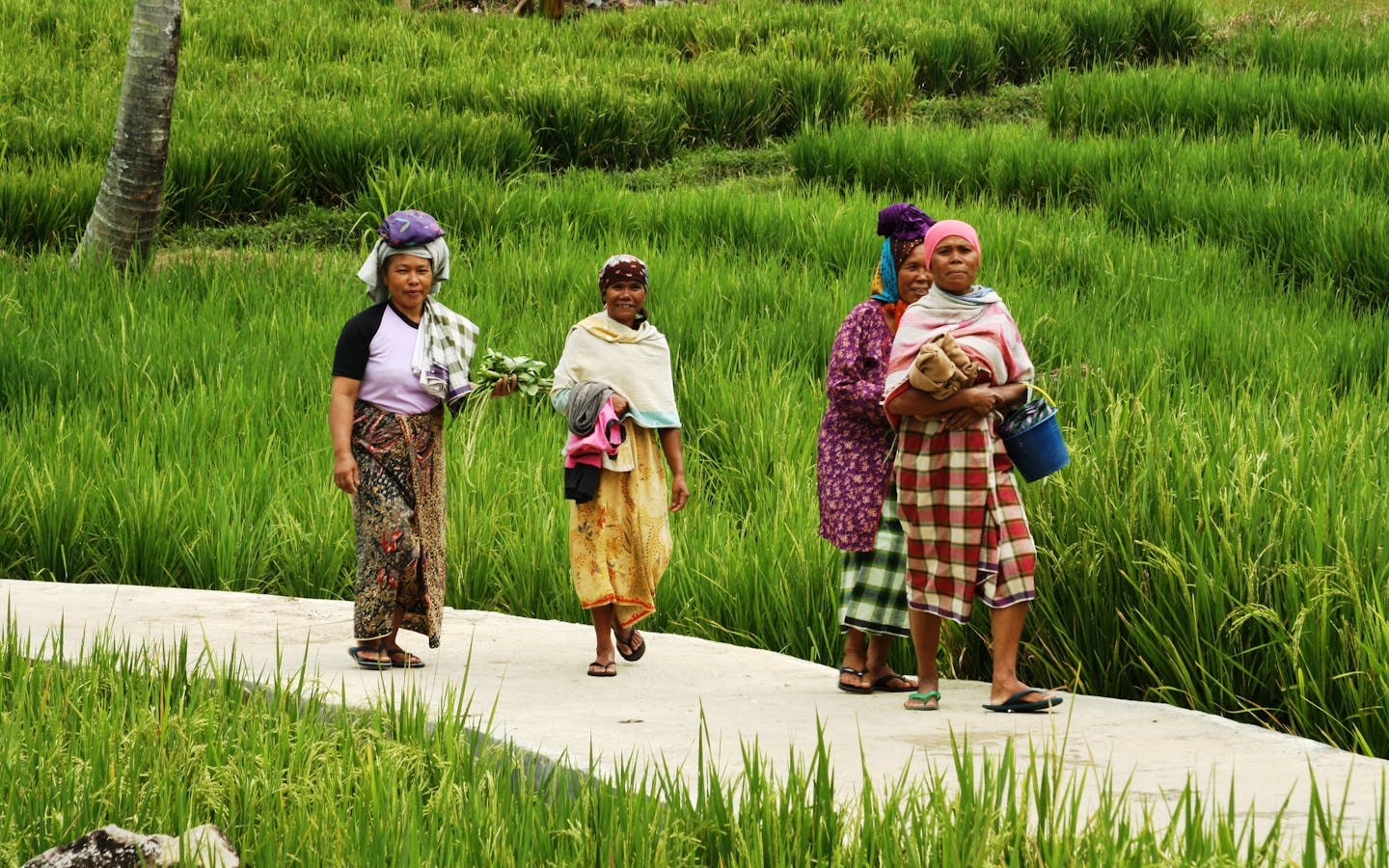The Sustainable Landscape Partnership has concluded and this page is no longer updated. For information about our ongoing sustainable landscape work in the region, please visit the website of our partner, Konservasi Indonesia.
As the world struggles to provide a growing population with food, water and energy, we are unwittingly destroying the very ecosystems that sustain us.
The rate of deforestation in Indonesia is accelerating faster than anywhere else on Earth — much of it to make room to grow commodities like rubber, palm sugar, palm oil, coffee and cocoa. Deforestation is further exacerbated by the limited options for sustainable livelihoods in local communities, where people turn to the forest in times of need or where alternative income-generating opportunities do not exist.
Our role
With USAID and the Walton Family Foundation, Conservation International was one of the founding members of the Sustainable Landscapes Partnership (SLP). Using the power of partnerships, we aim to provide a model for tackling global challenges — such as climate change, deforestation, competition for agricultural lands and declining access to clean water — while simultaneously improving economies.
SLP’s areas of focus include four regions in Indonesia’s North Sumatra province — Mandailing Natal (Madina), Tapanuli Selatan (Tapsel), Tapanuli Utara, and Pakpak Bharat — as well as West Papua Province in the eastern part of the country. In partnership with the Ministry of Forestry, local government, the private sector and local communities, we work to implement replicable business models that foster green development, particularly through economic alternatives to deforestation. SLP also advises on regulations for West Papua’s “conservation province” framework.
Our plan
Good governance
Good governance provides an enabling environment including policy goals, planning processes and capacity to support coordinated and effective implementation across landscapes. SLP provides facilitation for decision making in land-use planning and investments.
Biodiversity
Biodiversity is an important part of natural capital — the sources of the ecosystem benefits that humans enjoy. In Indonesia, deforestation and forest degradation are the primary causes of the decline of species such as orangutans, rhinos and tigers — crucial parts of the ecosystem. Through the SLP, we are working with the public and private sectors to conserve the forest and wildlife it contains.
Sustainable production
Sustainable production is largely derived from and dependent on natural capital. SLP promotes the diversification of production to increase landscape resilience and strengthen rural economies. SLP facilitates market access and stimulates sustainable practices.
Sustainable finance
Sustainable finance ensures long-term viability of investments and benefits to communities. Through the SLP, we are establishing a model in which society and the private sector pay for services. We are demonstrating innovative low-emission business models to encourage further investment.
By the numbers
5,500 farmers
The SLP works with approximately 5,500 farmers to improve the quantity and quality of commodities like rubber, cocoa and coffee, as well as provide benefits to more than 33,000 people.
Key program activities
The SLP pilot project is underway in Indonesia. As the program builds on its successes and creates a replicable model for green growth, we plan to expand it to other countries.
Developing strategic environmental assessments
Conservation International is helping local governments develop a strategic environmental assessment, which will serve as a basis for a green development trajectory in the Mandailing Natal, North Tapanuli and South Tapanuli districts. This assessment can inform and influence spatial planning.
Increasing local knowledge
Educating the public is key to generating participation in and support for improved conservation, natural resource management, sustainable production and low-emission development. Through various media channels in Indonesia, Conservation International is creating a public awareness campaign to increase local knowledge on relevant issues and improve the ability of local stakeholders to participate in the process.
Supporting community livelihoods
We work with the public and private sectors to train local farmers to improve the quantity and quality of commodities like rubber, cocoa, sugar palm and coffee. We also help them gain access to a more transparent market. Not only do these sustainable farming techniques support the protection of natural ecosystems, they also allow the farmers to fetch a higher price for their products.
Protecting forest and water supplies
Forests and the fresh water they provide are critical resources for Indonesia’s people. Conservation International works with the public and private sectors to implement integrated watershed management to protect the forest and maintain the water supply. Collaborating with local government, we are working in two key biodiversity areas — Batang Gadis in Madina and Batang Toru in Tapsel.
Engaging with the private sector
Conservation International is working with private companies and corporate partners to increase global investment and demand for sustainable commodities.
The Sustainable Landscapes Partnership (SLP) works with local governments and other partners to address climate change, conserve forests and improve livelihoods. With support from SLP, governments, communities, businesses and NGOs develop and test innovative, landscape-scale solutions to problems caused by human pressures on nature. The goal is a sustainable development path that protects our food, fresh water, livelihoods and climate that accounts for nature’s critical role in our well-being. | This video is produced by the SLP team working in North Sumatra, Indonesia. It presents the goals and benefits of the program, and features community members and partners that are engaged in the program. The video is in Bahasa Indonesia with English Subtitles. Learn more: http://ci-intl.org/1FpP5HN Follow us on: Twitter: http://www.twitter.com/ConservationOrg Facebook: https://www.facebook.com/conservation.intl Instagram: https://www.instagram.com/ConservationOrg




